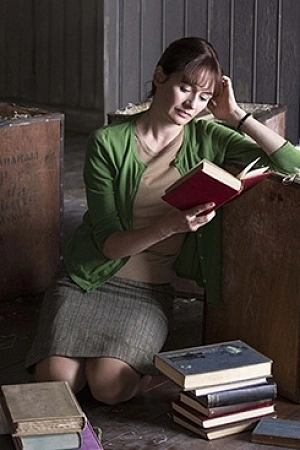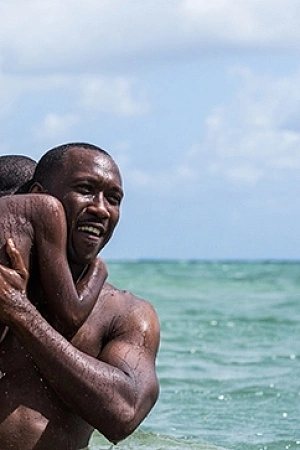Gone Girl
In David Fincher’s slick adaptation of Gone Girl, an attractive white woman, Amy Dunne (Rosamund Pike), disappears on her fifth wedding anniversary and her husband, Nick (Ben Affleck), quickly becomes the prime suspect.
Left behind at their Missouri McMansion are signs of a violent struggle – glass coffee table smashed, antique ottoman overturned, a copious amount of blood mopped up haphazardly from the kitchen floor – although the evidence itself appears to have been at least partially contrived. The revelations and further fabrications this crime scene engenders become a metaphor for this couple’s relationship. Amy and Nick Dunne, both writers who met in New York but have since returned to Nick’s Midwest childhood home after ‘his-and-her layoffs’, are an immaculately curated scene of a couple: she a thin ‘Cool Girl’ too nonchalant to ever nag; he an adorable, corn-fed ‘Good Guy’.
Continue reading for only $10 per month.
Subscribe and gain full access to Australian Book Review.
Already a subscriber? Sign in.
If you need assistance, feel free to contact us.















Comments (4)
Amy gets away with murdering a man on 'framed' evidence provided by cameras that would also have recorded her arriving with him unbound and wandering freely on her own over a day or two? And, as is pointed out but never addressed, how does a woman bound for days get a hold of a box cutter? Sorry, I don't buy it as clever. I buy it as not being clear on how to end what should have been a terrific story of pretence and manipulation behind a seemingly perfect marriage.
But then, I'm not an expert film critic, so what would I know?
Leave a comment
If you are an ABR subscriber, you will need to sign in to post a comment.
If you have forgotten your sign in details, or if you receive an error message when trying to submit your comment, please email your comment (and the name of the article to which it relates) to ABR Comments. We will review your comment and, subject to approval, we will post it under your name.
Please note that all comments must be approved by ABR and comply with our Terms & Conditions.